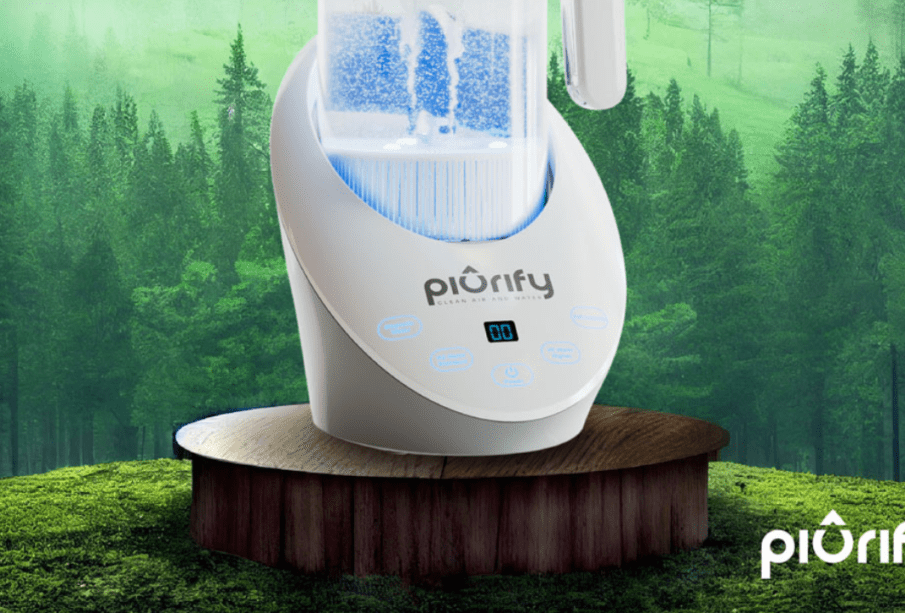The Future Of Water Purification: Can Hydrogen Generators Minimize Environmental Impact?

Water is essential to life, and everyone has the right to drink water that is clean and safe. However, in a world grappling with environmental challenges, ensuring the availability of pure and potable water has become increasingly complex. Traditional ways of cleaning water often use chemicals and processes that use a lot of energy and are bad for the earth. As we look toward the future, it’s crucial to explore sustainable alternatives that can minimize the environmental impact while providing safe water for all. One such alternative gaining attention is the use of hydrogen generators in water purification systems. In this article, we will delve into the potential of hydrogen generators to revolutionize water purification, reduce environmental harm, and pave the way for a more sustainable future.
The Growing Water Crisis
Lack of water is a major problem that affects millions of people around the world. According to the United Nations, by 2050, over half of the world’s population could be living in areas with water stress, and a substantial percentage may lack access to clean and safe drinking water altogether. The current methods of water purification are not only energy-intensive but also contribute to pollution and climate change. Traditional methods, such as chlorination and desalination, release harmful byproducts into the environment and consume vast amounts of energy.
As the number of people in the world increases, so does the need for clean water. This rising demand necessitates innovative and sustainable solutions to address the impending water crisis. Hydrogen generators offer a promising avenue for revolutionizing water purification, with the potential to reduce the environmental footprint significantly.
Hydrogen Generators: An Eco-Friendly Solution
Hydrogen generators, also known as electrolyzers, are devices that use electricity to split water molecules (H2O) into hydrogen (H2) and oxygen (O2). This process, known as electrolysis, can be harnessed for various applications, including water purification. The key advantage of using hydrogen generators in water treatment is their minimal environmental impact compared to conventional methods.
Green Energy Source: Clean energy, like solar or wind power, can be used to make hydrogen. This means that they are naturally good for the environment. By harnessing clean energy for the electrolysis process, the carbon footprint associated with water purification can be significantly reduced.
No Harmful Chemicals: Unlike traditional water treatment methods that rely on chemicals like chlorine, hydrogen generators do not introduce harmful substances into the water. Byproducts of chlorine can be bad for both people and the earth. This gets rid of that risk.The hydrogenated water bottle, servesas a reminder of the potential for innovation in the field of water purification.
Efficient Water Splitting: Electrolysis is an efficient process that separates hydrogen and oxygen with minimal energy loss. This efficiency can help conserve energy resources and reduce the overall energy demand for water purification.
Reduced Carbon Emissions: The use of hydrogen generators can contribute to lowering carbon emissions in the water treatment sector, aligning with global efforts to combat climate change.
Applications Of Hydrogen Generators In Water Purification
The adoption of hydrogen generators in water purification is not only a promising solution but also a versatile one. These generators can be integrated into various water treatment processes, offering a range of applications:
Disinfection: Electrolysis turns water into hydrogen gas (H2), which can be used to clean without harm. It has been proven to eliminate harmful microorganisms and pathogens in water without the need for chlorine or other chemicals. This application ensures water safety without compromising on environmental concerns.
Ph Adjustment: Hydrogen generators can be used to adjust the pH levels of water by generating hydrogen ions (H+). This is particularly useful in industries such as wastewater treatment and desalination, where precise pH control is essential.
Hydrogen Peroxide Production: Electrolysis can also be utilized to produce hydrogen peroxide (H2O2), a powerful oxidizing agent. Hydrogen peroxide can effectively remove organic contaminants and pollutants from water, further enhancing its quality.
Oxygen Production: The oxygen (O2) generated during the electrolysis process can be used for various purposes, such as supporting biological treatment processes in wastewater treatment plants or improving the dissolved oxygen levels in aquatic ecosystems.
Challenges And Considerations
While hydrogen generators hold immense promise for eco-friendly water purification, several challenges and considerations need to be addressed for their widespread adoption:
Cost: The initial investment in hydrogen generator systems and renewable energy infrastructure can be substantial. However, over time, the lower operational costs and reduced environmental impact may justify these upfront expenses.
Scalability: Scaling up the production and implementation of hydrogen generators for large-scale water treatment facilities may require significant engineering and logistical efforts. Ensuring that the technology is scalable and adaptable to various settings is crucial.
Infrastructure Integration: Integrating hydrogen generators into existing water treatment infrastructure may pose logistical challenges. It is essential to assess the feasibility of retrofitting existing facilities or designing new ones with hydrogen generation in mind.
Safety: Hydrogen gas is highly flammable and poses safety risks if not handled properly. Robust safety measures and protocols must be in place to mitigate these risks, especially in densely populated areas.
Regulatory Approval: Regulatory agencies must evaluate and approve the use of hydrogen generators in water purification processes to ensure that the technology meets safety and quality standards.
The Future Of Hydrogen Generators In Water Purification
The future of water purification holds great promise with the integration of hydrogen generators. It is likely that more innovations will be made in this area as technology keeps getting better and environmental issues grow. Here are some potential developments and trends to watch for:
Decentralized Water Treatment: Hydrogen generators can be employed in small-scale, decentralized water treatment systems, providing communities with access to clean water, even in remote areas. This method can help make centralized water treatment plants less busy and cut down on the amount of water that is lost during distribution.
Smart Water Purification: The integration of artificial intelligence and data analytics into water purification systems can optimize the electrolysis process, making it more energy-efficient and cost-effective. Real-time monitoring and control can ensure the highest water quality standards are consistently met.
Hydrogen Storage And Transportation: Innovations in hydrogen storage and transportation technologies may facilitate the distribution of hydrogen gas to areas lacking renewable energy sources. This can expand the reach of hydrogen generators for water purification.
International Collaboration: Collaborative efforts among governments, research institutions, and private companies may lead to the development of international standards and regulations for the use of hydrogen generators in water treatment, ensuring safety and efficacy on a global scale.
Conclusion
The future of water purification is inextricably linked with our ability to embrace sustainable and environmentally friendly technologies. Hydrogen generators represent a promising solution that can revolutionize the way we treat and provide access to clean water. By harnessing renewable energy sources and eliminating the use of harmful chemicals, hydrogen generators can minimize the environmental impact of water purification while ensuring the safety and well-being of communities worldwide.
As we face the challenges of water scarcity and climate change, it is crucial to invest in innovative solutions like hydrogen generators. With continued research, development, and collaboration, we can pave the way for a future where clean and safe drinking water is not only accessible to all but also aligned with our commitment to preserving the planet for future generations.











